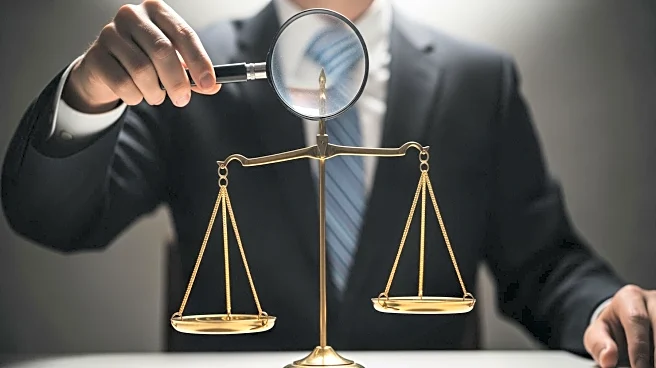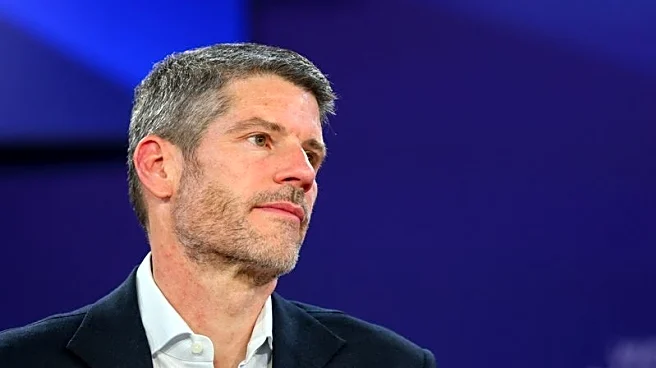What's Happening?
Elliott Broidy, a former deputy finance chair of the Republican National Committee, has filed a defamation lawsuit against the Israeli newspaper Haaretz. The lawsuit, filed in the U.S. District Court for the Southern District of Florida, claims that Haaretz published
false information about Broidy's involvement with Koios, an Israeli firm accused of working for Qatar. Broidy, who was pardoned by President Trump in 2021, asserts that he was mischaracterized as a 'secret partner' in the firm, which he denies. The lawsuit seeks to hold Haaretz accountable for allegedly misleading reporting and aims to vindicate Broidy's reputation.
Why It's Important?
This lawsuit highlights the ongoing tensions between media outlets and public figures, particularly in the realm of international business and politics. Broidy's legal action against Haaretz underscores the challenges faced by individuals in protecting their reputations against potentially damaging media narratives. The case also reflects broader issues of media accountability and the impact of international reporting on U.S. political figures. The outcome of this lawsuit could set a precedent for how defamation cases involving foreign media are handled in U.S. courts, potentially influencing future legal strategies for public figures seeking redress.
What's Next?
The legal proceedings will likely involve detailed examination of the claims made by Haaretz and the evidence presented by Broidy. The case may attract attention from media and legal experts, given its implications for cross-border defamation disputes. If successful, Broidy's lawsuit could lead to changes in how media outlets report on international business dealings and political figures. Haaretz may need to defend its reporting practices and address the allegations of falsehoods in its coverage. The case could also prompt discussions about the responsibilities of media organizations in ensuring accurate and fair reporting.
Beyond the Headlines
The lawsuit raises questions about the ethical responsibilities of media outlets in reporting on complex international issues. It also highlights the potential consequences of media narratives on the reputations of public figures, emphasizing the need for careful and accurate journalism. The case may lead to broader discussions about the role of media in shaping public perceptions and the balance between freedom of the press and individual rights.















